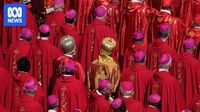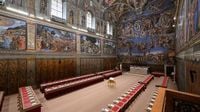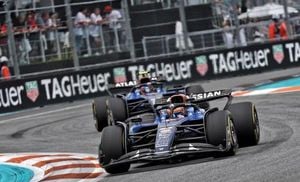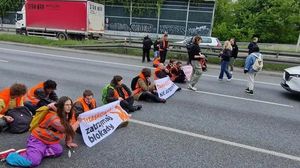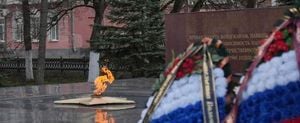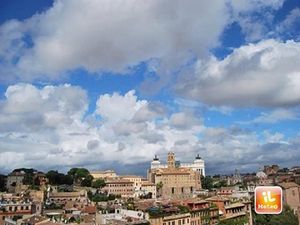On Wednesday, May 7, 2025, the eyes of the world turn to the Vatican as 133 cardinals from 70 countries gather in the iconic Sistine Chapel to begin the highly anticipated conclave to elect the next pope. This event follows the passing of Pope Francis on April 21, marking a significant moment in the history of the Catholic Church, as the new leader will navigate a complex landscape of challenges and expectations.
The conclave, which has been a tradition for nearly 800 years, will see the cardinal-electors locked behind closed doors, their cellphones surrendered and airwaves jammed to ensure secrecy. The process of electing a new pope is steeped in ritual, including the famous smoke signals that communicate the outcome of the voting. Black smoke indicates no pope has been elected, while white smoke signifies the election of a new pontiff.
The frontrunners for this papal election include Italian Cardinal Pietro Parolin, Filipino Cardinal Luis Antonio Tagle, and Hungarian Cardinal Peter Erdő, among others. Each candidate brings their unique credentials and perspectives, reflecting the diverse and sometimes divided nature of the College of Cardinals.
Cardinal Parolin, 70, currently serves as the Vatican Secretary of State and is often referred to as the "deputy pope." He is seen as a seasoned diplomat with a global vision, having played a crucial role in mediating international relations, including a thaw between the United States and Cuba. However, some observers question his pastoral experience, which could hinder his candidacy.
Cardinal Tagle, 67, the Archbishop of Manila, is a charismatic figure popular among the public and bookmakers alike. Known for his engaging personality, he has garnered a following on social media and is regarded as a potential candidate to become the first pope from Asia. His approach to social issues, including a call for a more compassionate stance toward marginalized communities, resonates with many.
On the other hand, Cardinal Erdő, 72, represents a more conservative viewpoint, particularly in relation to issues such as migration and same-sex unions. His alignment with Hungary's nationalist Prime Minister Viktor Orbán has raised eyebrows, especially given the progressive legacy left by Pope Francis.
As the conclave progresses, the cardinals will be guided by the homily delivered by Cardinal Giovanni Battista Re, who emphasized the importance of love and unity in their decision-making. He called for the cardinals to set aside personal considerations and focus on the needs of the Church and humanity during this "difficult and complex turning point in history."
The conclave is not just an election but a reflection of the evolving demographic realities within the Catholic Church. As noted by Cardinal Timothy Dolan, Pope Francis aimed to ensure that every language, racial background, and geographic area was represented in the life of the Church. This year's conclave is the largest in history and includes cardinals from countries that have never had a voice in such elections before.
Moreover, the next pope will face significant challenges, including addressing the lingering effects of sexual abuse scandals, the rise of secularism, and the internal dynamics of the Church. The global Catholic community is shifting, with a growing number of believers in Africa and Asia. Currently, approximately 281 million Catholics reside in Africa, highlighting the continent's increasing influence within the Church.
In addition to the frontrunners, other notable candidates include Cardinal Jean-Marc Aveline of France, who is viewed as a potential successor to continue Pope Francis's progressive legacy, and Cardinal Matteo Zuppi of Italy, known for his commitment to social justice and environmental issues.
Cardinal Peter Turkson from Ghana is also among the influential figures from Africa, recognized for his advocacy for the marginalized and his charismatic presence. His candidacy, along with others from the Global South, signals a potential shift in leadership that could resonate with the changing demographics of the Catholic Church.
As the cardinals prepare to cast their votes, they will be reminded of the historical significance of their decision. The election of a new pope is not merely a change of leadership; it symbolizes a return to the roots of the Church, echoing the legacy of St. Peter.
The world will be watching closely as the cardinals enter the Sistine Chapel, marking the beginning of a new era for the Catholic Church. The outcome of this conclave will not only shape the future of the Church but also influence its role in addressing contemporary issues faced by its followers worldwide.
As the day unfolds, the anticipation grows, and the faithful await the signal from the chimney atop the Sistine Chapel, eager to learn who will lead the Church into the future. Will it be a pope that continues the progressive path laid by Pope Francis, or will the Church take a more conservative turn? Only time will tell as the conclave commences and the cardinals begin their sacred duty.
